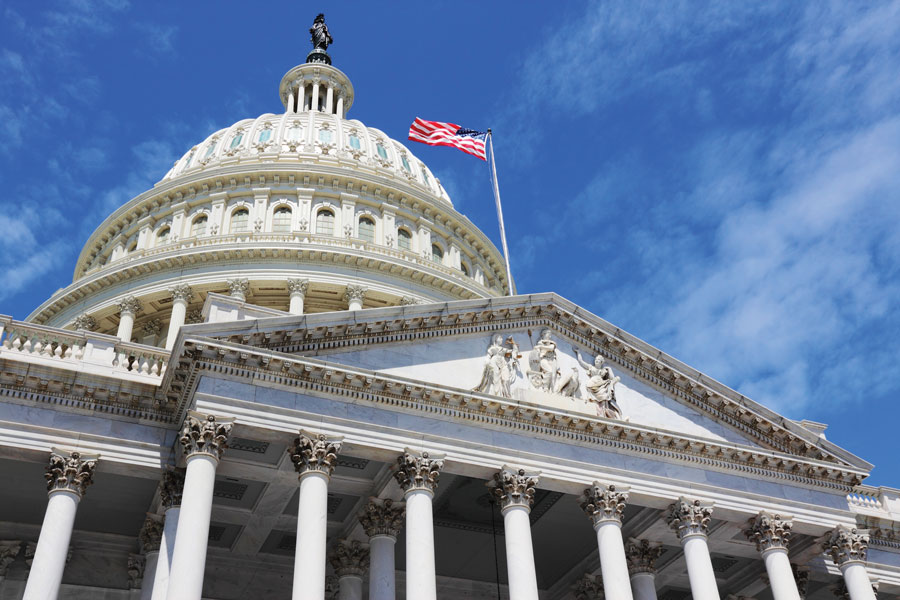

Congress won’t undertake significant Social Security reform until the entitlement program approaches a crisis that falls within most lawmakers’ reelection windows — which could occur after the 2028 election, longtime Washington observer Jeff Bush said Tuesday.
In 2032, the entitlement program’s trust fund is projected to be empty. Taxes collected to fund the program would only pay 80% of promised benefits at that point. Congress would be forced to act within a couple of years, transcending House, Senate and presidential election timelines.
Until then, lawmakers appear to have taken Social Security off the table as they debate how to tackle the country’s $31 trillion debt.
“It is not mathematically honest,” Bush, principal at The Washington Update, said at the InvestmentNews Retirement Income Summit in Chicago.
Although members of Congress put forward ideas to reduce the deficit, those plans don’t include ways to pay down the debt over time, Bush said. Another problem is that budget bills tend to be a bipartisan cornucopia of spending. Compromise means including everything each side wants.
The looming standoff over raising the debt limit won’t provide a breakthrough on Social Security reform, Bush said. Republicans are demanding spending cuts before agreeing to an increase in the limit, but they aren’t mentioning entitlements.
“They’re proven they can’t muster enough support,” Bush said on the sidelines of the IN conference. “Credit [President] Biden. He set them up, and they took the bait.”
It’s not likely Congress will be able to address another looming fiscal issue until after the 2024 election — the expiration of tax cuts that were ushered in by a 2017 law. Most of the breaks — including lowering individual tax rates and doubling the estate tax exemption — will expire at the end of 2025.
One result would be that the current 24% tax bracket disappears, and many Americans paying that rate may see it increase to 33%, Bush said. He encouraged advisors to adjust the location of their clients’ assets in order to reduce tax exposure.
That could mean, for instance, converting traditional individual retirement accounts into Roth IRAs, life insurance or annuities. Other steps include gifting to lower an estate tax hit and using qualified charitable contributions. Those kinds of moves can help clients manage their tax burden.
“It puts them in control,” Bush said.
The fate of the expiring tax breaks depends on the election outcome in 2024, Bush said. If Republicans sweep the House, Senate and White House, the tax breaks could be extended. If Democrats sweep, it may portend a return of the wealth taxes proposed in the original Build Back Better legislation.
The most likely 2024 election result is split government and a situation similar to the current makeup of Washington, where Republicans control the House and Democrats control the Senate, both by narrow margins.
Bush gives Republicans the advantage to win the Senate and Democrats the advantage in the race for the White House in 2024. The House of Representatives is too close to call, he said.

The fraudulent "royalty payments" scheme, which involved $106 million in false tax deductions claimed over nearly a decade, reportedly cost the IRS $37 million in tax losses.

The Republican leader balked at calls to raise the tax deduction, which has been one of the stickiest wickets blocking President Donald Trump's legislative agenda.

Congress should amend regulations to ensure access for all, allowing issuers to spend less time with state regulators and more time building better portfolios.

The Wall Street giant's CEO defends its office-first policy while others argue for remote flexibility, especially for working mothers.

The latest defections from CUSO Financial Services, which operates within LPL, add nearly $500 million in client assets to Osaic's institutional platform.
How intelliflo aims to solve advisors' top tech headaches—without sacrificing the personal touch clients crave
From direct lending to asset-based finance to commercial real estate debt.
